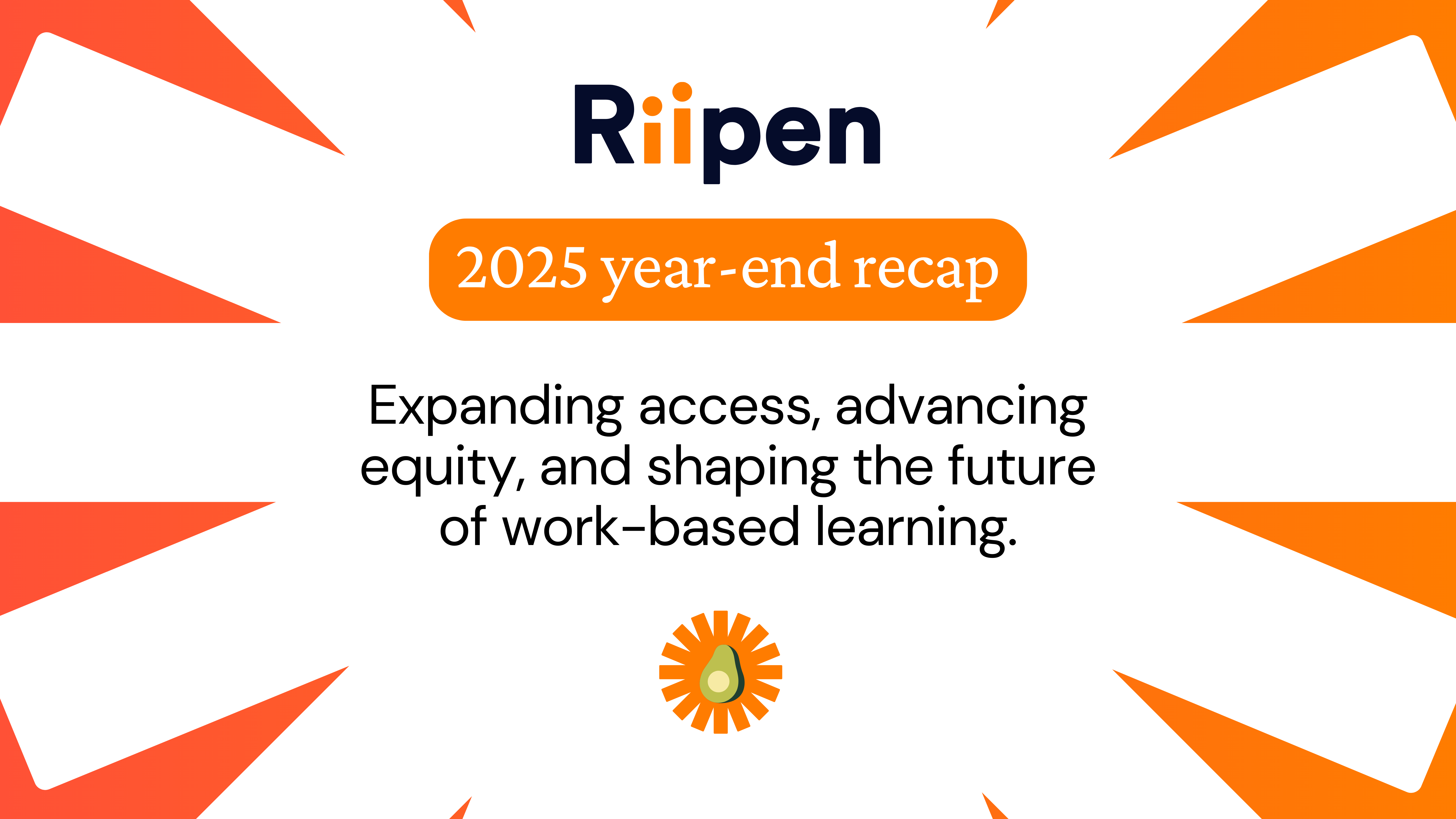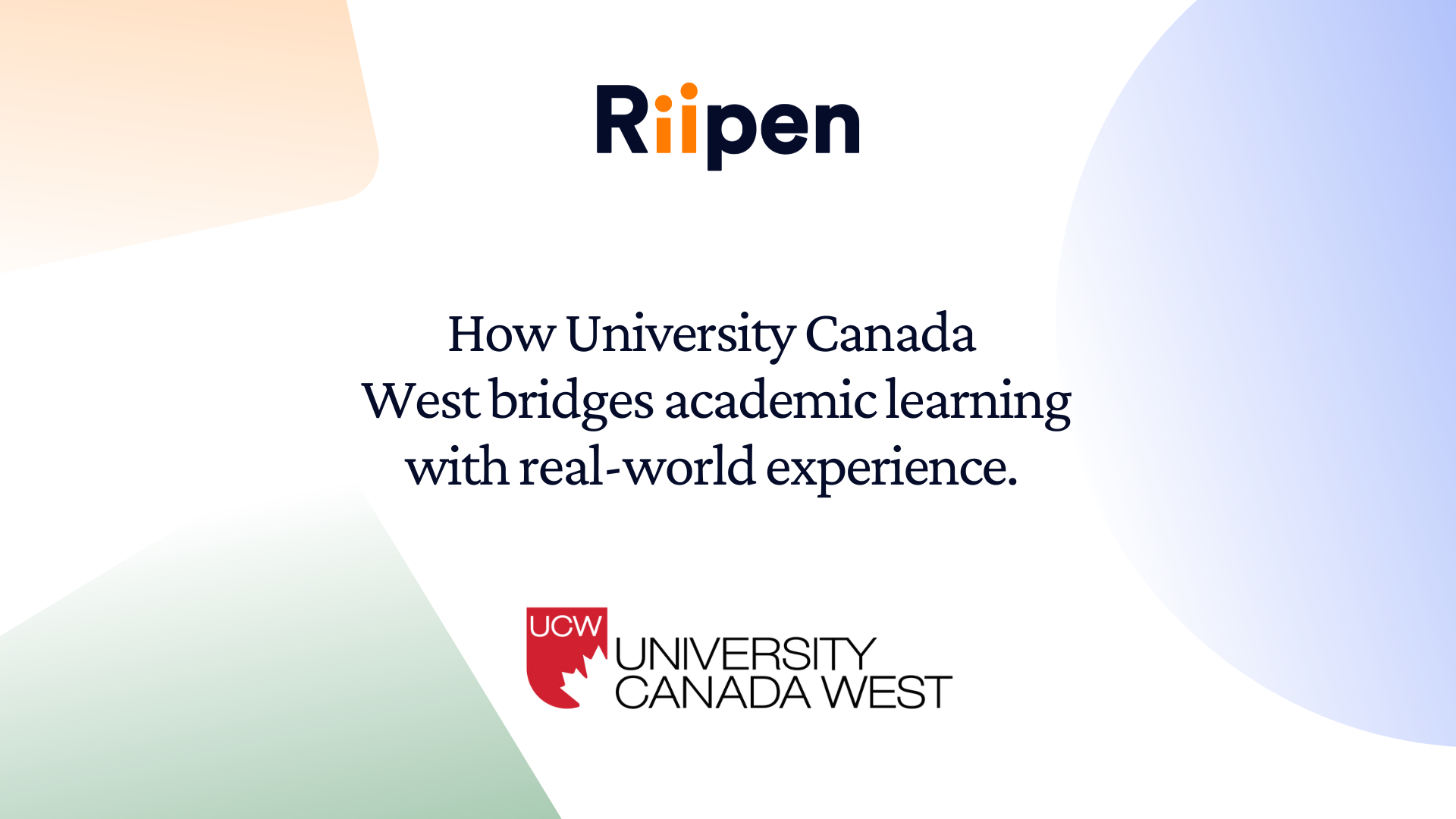.png)
While the higher education sector is rife with debates about the balance between theory and practical application, many institutions are waiting at a crossroads.
If you've been on the fence about integrating experiential learning into your curriculum, now is the time to take a closer look and understand its transformative potential for your institution.
We’ve gathered some compelling statistics and insights that highlight the pressing need for bridging the growing disconnect between academic pedagogy and real-world skill sets demanded by employers. Let’s get started.
1. Students desire more real-world applications in their courses
The majority of today’s students want more than to consume and retain information and reviewing hypothetical scenarios in lecture halls; they want more tangible connections between what they learn in classrooms and its application in the real world. In fact, the numbers speak for themselves.
Several recent surveys found that there is a growing desire for experiential or work-based learning (WBL) projects where students can gain the authentic, hands-on experience that prepares them for life after graduation. Here’s a closer look at some of the results:
- 81% of students feel that it’s important or very important for schools to offer real company-led projects.
- 79% say it is important to have on-the-job learning experiences during their postsecondary education.
- 55% of undergraduates and 38% of graduates find it challenging to engage in classes.
There is no denying that this desire is growing, and integrating hands-on experiences into the curriculum can help address this demand. By doing so, educational institutions can bolster student engagement, increase course completion rates, and provide students with tangible skills to make them more competitive.
2. Internships are scarce, underscoring the need for work-based learning
Contrary to the widespread perception, internships are not the low-hanging fruit many assume them to be. These coveted opportunities are in shorter supply than most realize, and even when they are available, they aren't always accessible to all.
That’s because internships typically tend to favor individuals who have large, established networks or familial connections. Those who lack these connections often find themselves struggling to break into the industry they want. In fact, it was recently reported that:
- A concerning 41.3% of students reported being unable to secure an internship simply due to the lack of available opportunities.
- Out of the roughly 157,000 students enrolled in internships across the US, less than 44% of them are students of color.
- Less than a quarter of undergraduates completed an internship during their academic journey, and that has continued to drop since the pandemic hit.
- More than 67% of students wanted to obtain internships but were unable to due to a variety of obstacles.
This unequal access to internships underscores the urgent need for alternative pathways, like in-class, work-based learning experiences, that can offer authentic, real-world experience to all students, regardless of their background or circumstances.
3. For those who secure an internship, completion rates are steadily declining
It's one thing to secure an internship, but seeing it through to completion is another matter entirely. Recently, there's been a concerning trend of dropping internship completion rates, which, upon closer examination, reveals deeper disparities, particularly among people of color (POCs).
Let's dive into the numbers:
- 22% of undergraduates completed an internship in 2021-22, compared to 26.4% the previous year.
- This trend gets worse throughout the years, in 2016 41% of Black seniors were completing internships, compared to 15.3% in the past year.
So, why the decline?
Several factors might be influencing this downward trajectory. The global pandemic has undeniably disrupted traditional internship models, with many companies pulling the brakes on their internship programs.
It is also possible that the virtual shift, although a necessary adaptation, does not meet all interns' learning styles and needs, resulting in a lack of engagement and, consequently, a dropout.
The decrease in completion rates, especially for POCs, isn't just a statistical concern—it has real-world implications. It reduces the chances of these students converting internships into full-time opportunities, thus hindering their entry into the professional world and potentially perpetuating systemic inequities.
4. Experiential learning promotes diversity and inclusivity
The beauty of experiential learning is its intrinsic ability to level the playing field for students from varied backgrounds. It breaks down barriers that have historically held back marginalized groups, ensuring everyone has equal opportunities to succeed.
Organizations that strategically invest in these education programs not only support the educational journeys of students but also diversify and enrich their talent reservoir.
To further emphasize the importance and impact of this approach, consider the following data:
- 92% of individuals agree that a strategic workforce education program significantly benefits an organization.
- One study showed WBL opportunities consistently show positive impacts, especially when students can correlate their education to potential career trajectories, regardless of their personal background.
- Another case study proved that experiential learning presents an opportunity for people of color (POC) to establish vital relationships that can pave the way for post-college employment.
With experiential learning paving the way for more inclusive recruitment, organizations can foster a vibrant, innovative environment. The confluence of diverse voices leads to enriched brainstorming sessions, holistic problem-solving, and groundbreaking innovations.
5. Industries are actively seeking collaborations with academia
As the pace of industry evolution quickens, there's a growing realization among businesses that the bridge between academia and the real-world needs strengthening. Employers are increasingly seeking collaborations with educational institutions to ensure the graduates they hire are not just degree holders, but are genuinely job-ready.
A key trend underscoring this shift is the advocacy by employers for experiential learning initiatives. Such initiatives aim to infuse real-world application into the curriculum, allowing students to get a taste of actual workplace scenarios, problems, and solutions.
Surveys and data consistently emphasize industries' preference for candidates with hands-on experience, such as:
- This report found that 64% of employers feel that there is a skill gap in their organization that could make them 42% less efficient.
- It also found that 46% of employers believe that colleges adequately prepare students for the workforce. This could explain why 64% of employers have actively collaborated with schools to make curricula more responsive to workforce needs.
- This study found that employers noted that these partnerships play a significant role in their ability to gain the information they need for continued growth.
With the changing landscape of education and the pressing needs of the industry, these collaborations are not just desirable; they are essential. Institutions that remain proactive, focusing on real-world applications and experiential learning, will likely find themselves at the forefront of this academic revolution.
6. Higher education is finding difficulty meeting the demand for experiential learning
Despite the evident and increasing demand among students for WBL and experiential opportunities, there is a conspicuous gap in its integration into academic curricula.
While higher education institutions acknowledge the value of experiential learning, many institutions still grapple with resource constraints, lack of industry partnerships, and challenges in updating traditional curricula to better align with current workplace requirements. To put this into perspective:
- A mere 30% of educational institutions offer experiential learning opportunities.
- Even more striking is the revelation that 39% of students did not engage in any internship or experiential learning opportunity throughout their college years.
Even though there is an urgent need for more diverse experiential opportunities, these statistics reveal that a significant fraction of students don't get to take part in pivotal experiences that can shape their career paths.
As the educational landscape continues to evolve, institutions that have involved educators in the process have seen more success in these programs, helping to adequately prepare their students for real-world challenges and maintain their relevance and appeal.
7. Majority of students secure jobs after hands-on experiences
In an incredibly competitive job market, recent graduates often find themselves at a crossroads, striving to distinguish themselves from their peers. They don't just want degrees; they crave experiences that give them an edge, experiences that resonate with the dynamism of real-world challenges.
Here's where the unparalleled value of experiential learning reveals itself:
- 68% of participants receive job offers after their hands-on experiential learning.
- Nearly 85% of participants in Arizona State University’s experiential programs were able to improve or develop soft skills that would make them more competitive for the workforce.
- This paper found that students that completed work-based learning activities increased their chances of both short-term and long-term employability by 3 and 4 percentage points (respectively).
Innovation is relentless and industries transform overnight. Employability today is no longer just about having a degree; it's about having adaptability, practical insight, and the ability to navigate real-world challenges.
When students gain hands-on experience during their academic journey, they don't just learn; they evolve into professionals ready for the challenges of the modern workforce.
8. Riipen's data reveals its influential role in education
As the world’s leading experiential learning marketplace, Riipen has had a first-hand glimpse of the power authentic work-based learning projects have on educational outcomes.
This unique perspective has enabled Riipen to be at the forefront of an educational revolution, reshaping how institutions are expanding their offerings and retaining even more students. Let’s take a quick look at the numbers:
- Over 100 courses at Arizona State University have utilized Riipen, delivering more than 9,000 student experiences across 500+ authentic employer projects.
- They’ve seen an unprecedented 88% growth in delivering work-integrated learning experiences to learners in 9 counties and 4 continents.
- 82% of students reported that their experiences with Riipen helped them grow their professional network and employer connections.
While this data captures the platform’s expansive reach, the myriad success stories echo its profound impact on individual student journeys.
For example, Ashley Yuen from the University of Guelph, had this to say about their experience, “I believe my experience working with a real client has enhanced my knowledge and skills as I was able to apply what I have been learning to the organization. By working with a real client, I furthered my collaboration, communication, and analytical thinking skills while maintaining professionalism to the partner. I can take what I have learned from this experience and apply it to future courses I take and continue to develop my skills through job opportunities.”
Riipen's achievements stand in a league of their own, emphasizing its unparalleled contribution to the domain of experiential education.
How Riipen aligns with modern educational needs

Navigating the ever-evolving educational terrain reveals some stark realities. The research underscored a palpable rift between students' desire for experiential learning and institutional offerings, its inherent power in championing diversity, and the profound impact on employability metrics.
With Riipen, you're perfectly positioned to bridge these divides. With its robust approach to education and ability to keep track of detailed impact reports, it's delivering more than just knowledge; it's shaping experiences.

And the numbers affirm this: whether it's the significant growth in delivering work-integrated learning experiences worldwide or the undeniable success rates observed at institutions like Arizona State University.
But it's not just about the data. It's about the transformational stories of students who've witnessed the profound impact of authentic work-based learning projects on their educational outcomes.
Riipen doesn't just align with the demands of modern education; it pioneers a new direction, underscored by compelling data and powerful testimonials.
{{inline-cta}}




So if you’re finally ready to embrace experiential learning, schedule a demo and see what Riipen can do for you.










.png)
















.png)







